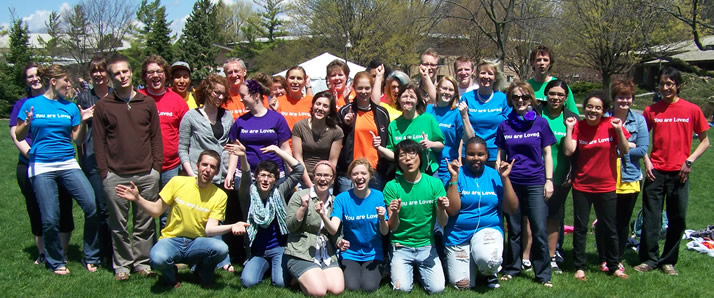Editor’s Note: Julia Smith is the current director of the sexuality series at Calvin College.
I have followed with interest the recent Chimes reporting on LGBT issues, especially the question of Calvin’s place on the Princeton Review “LGBT-unfriendly” ranking list. The list is attention-grabbing, but before making too many assumptions, we should take a moment to understand it more fully.
Schools in the Review’s “top 373 colleges” (not all schools in the nation, as has been claimed) take the survey once every three years. They can offer it to as many or as few students as they choose. The Review’s website states that the average number of respondents per school is 325, and at least one school has only ten. Nothing prevents a school from sending the survey to a targeted group of students. The scores of the 20 ranked schools in each list are not given — there may be wide variance between them, or not; we just don’t know. What we can say is that the ranking lists are impressionistic, haphazard and not scientifically valid.
At Calvin the entire student body is invited to take the Princeton Review survey via student news. This last happened in Dec. 2010, so our rankings in both 2011 and 2012 were based on that information. Our 2013 rankings will also be based on the same results, since we don’t take the survey again till Dec. 2013. Note that other schools on the list take the survey in different years, so their results affect Calvin’s ranking place even though our score remains the same for three years.
The LGBT unfriendly list is based on answers to the question, “Do students, faculty, and administrators at your college treat all persons equally regardless of their sexual orientations and gender identity/expression?” It’s really 3 questions in one, each of which raises further questions. And it has no room for nuance or a diversity of theological convictions. Are we talking about students using slurs and saying “that’s so gay”? There is too much of that language among Calvin students (our own survey from fall 2011 found that 82 percent of respondents have heard “that’s so gay” or other offensive language from Calvin students). Are we talking about students feeling uncomfortable because a professor seems more conservative or liberal than they would like? Are we talking about the stated theology of the Christian Reformed Church? Are we talking about equality in financial aid? Grading? Admissions? Concerts? Gender-neutral bathrooms? Are we talking about people asking if you’re dating and assuming you’re straight? Are we applying the question to ourselves: “Do I treat all people equally?”
Calvin’s own 2011 Sexuality Series survey showed that LGBT and questioning students do feel less safe than their heterosexual peers at Calvin, especially emotionally. We all need to be aware of this, and strive to be a more supportive community. Interestingly though, the data also showed that the overall estimation of the student body regarding LGBTQ students is inaccurate: LGBTQ students believe they are faring significantly better than students in general think they are. I believe it’s important for us to recognize this perception gap, without in any way minimizing the struggles that many non-heterosexual students do face.
It is also worth remembering that all our students come to Calvin bringing assumptions with them. By the time they are seniors, 70 percent of respondents agree that a person can be gay (referring to orientation, not sexual activity) and Christian. This compares to only 45 percent of first year respondents who agree. So the CRC’s message that no one is excluded on the basis of sexual orientation is being heard. The other main plank of the CRC’s and Calvin’s position — that Scripture prohibits same-sex partnerships — is also held by a majority of students who took our survey.
So let’s understand the Princeton Review ranking lists. More importantly, let’s ask Jesus to lead us through the interconnected set of topics raised by sexual difference and cultural change in our society. There are complex issues of theology and hermeneutics at stake, of justice in a pluralist democracy, of sexual ethics, biology and psychology. And, of course, the well-being of all people, dearly loved by God.



